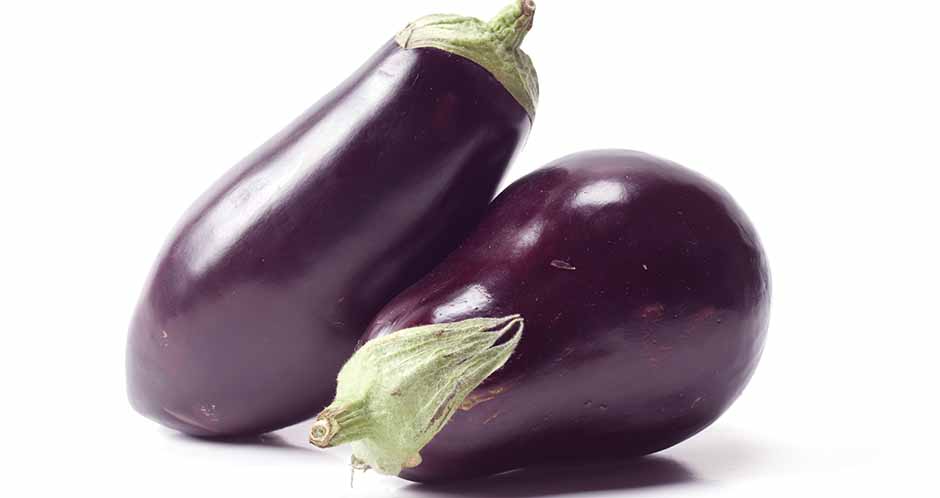As a member of the nightshade family, eggplant is cousin to tomatoes, potatoes and bell peppers. But with its unusual shape and color and a less common presence at American tables, it can easily get passed over for more familiar produce. Plus, many a first-time eggplant cook has found the results to be bitter. Avoid this unpleasant fate with these selection and prep tips.
Choose Wisely
Go small: Larger, older eggplants tend to be more bitter. Look for firm, glossy skin with minimal blemishes. The eggplant should be heavy for its size. Prime eggplant season is late summer through early fall.
Prep Like a Pro
Eggplant contains antioxidant compounds that make it extremely healthy but somewhat bitter at the same time; the bitterness increases the longer you wait to cook it. A trick to zap the bitter taste: Before cooking, wash the eggplant and trim off its top and bottom. For the best health benefits, leave the skin on. Slice or cube the eggplant, and generously salt the pieces. Let sit for 30–60 minutes. Then gently press pieces between paper towels to remove excess salt and juices.
Cook It Up
Roast it, fry it, mix it into stews or stir-fries, make it into burgers or meatballs, or try our favorite cooking method: grilling. Preheat grill to medium. Cut eggplant into ½-inch slices; brush with olive oil; and sprinkle with salt, pepper and your favorite herbs. Place eggplant in a grill basket or on a piece of aluminum foil directly on the grill. Cook about 8 minutes (covered for gas grill, uncovered for charcoal), turning occasionally. The trick is actually to avoid undercooking it, unlike most produce.
Did You Know?
The eggplant—called aubergine in many parts of the world—is not a vegetable. It’s actually a fruit, or even, according to some classifications, a berry.
Here’s a fun and easy way to prepare eggplant: mini eggplant pizzas.

